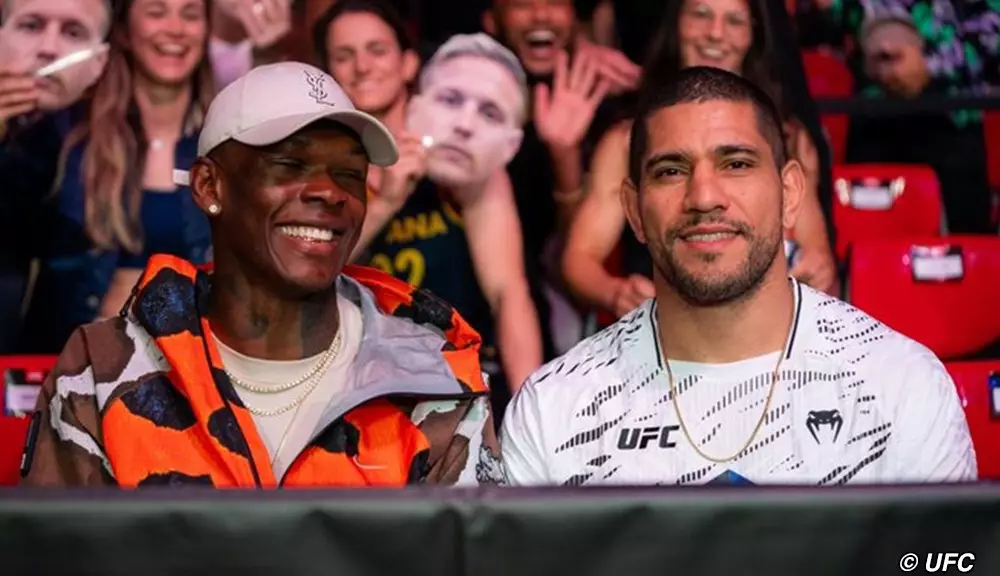In the unforgiving realm of mixed martial arts (MMA), few athletes exemplify resilience and adaptability like UFC light heavyweight champion Alex Pereira. Known for his striking prowess and formidable presence inside the Octagon, Pereira’s journey has not been without its complications, especially regarding the demands of his travel schedule. As he gears up to defend his title against Magomed Ankalaev on March 8 at UFC 313 in Las Vegas, the champion is juggling various commitments that could potentially distract less seasoned fighters.
Pereira’s recent trip to Sydney for UFC 312, where he supported fellow fighter Sean Strickland in his title bout, has sparked debate among analysts and fans alike. The renowned commentator Daniel Cormier expressed concern over Pereira’s travel during such a critical training period. The questioning highlights the pressures that come with high-stakes sports, where every decision is scrutinized. Pereira, however, maintains that his trip was not merely a gesture of camaraderie but part of a well-structured plan. His ability to navigate these logistical complexities speaks volumes about his dedication to both his training and his relationships with his peers.
Pereira’s relationship with Strickland is often overshadowed by the language barrier, yet the bond they share is crucial for both fighters. Pereira, while acknowledging his limited English skills, emphasizes the importance of shared energy and motivation. The camaraderie he feels with Strickland transcends verbal communication, and his participation in Strickland’s corner provided him with an opportunity to remain engaged in the sport while also honoring prior commitments. This synergy between the fighters demonstrates a greater theme in combat sports: the importance of community and support systems in achieving individual success.
As any seasoned athlete can attest, disruptions and distractions are part and parcel of an intense training regimen. Pereira draws upon past experiences, particularly his competing schedule before facing Israel Adesanya in 2016. His victory in that fight serves not only as a reminder of his capabilities but also illustrates that focus and intent can often counteract the adverse effects of hectic travel. Pereira’s mentality of embracing the circumstances rather than succumbing to them marks a significant trait of champions.
While Pereira acknowledges that excessive travel is not the ideal scenario for any fighter, he approaches it with a sense of pragmatism. His upcoming title defense against Ankalaev is not just another match; it’s a chance to prove his mettle under pressure. The preparation for large-scale events can often lead to distractions, but for Pereira, the key lies in meticulous planning and self-awareness.
In the world of UFC and MMA, one must not only be a fighter but also a strategic thinker capable of balancing numerous facets of a demanding life. Pereira’s journey emphasizes that success in the Octagon is not defined solely by physical prowess but also by mental fortitude and the ability to adapt to the ambiance of competition—an ongoing dance between commitment, community, and personal growth. As he approaches his next clash, fans are eager to see how this champion continues to navigate the turbulent waters of professional sports, all while maintaining his focus on the ultimate prize.

